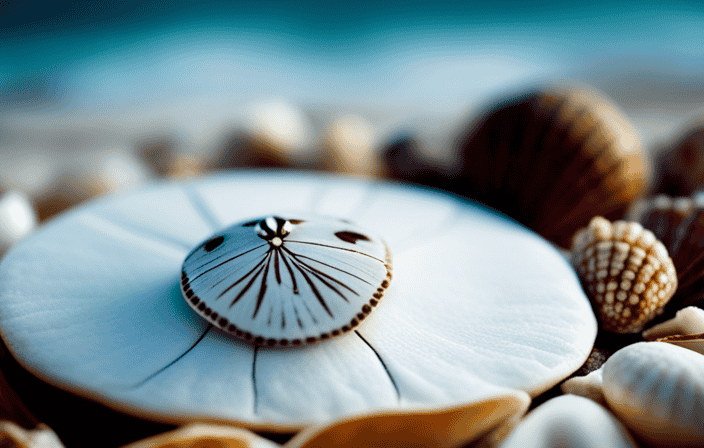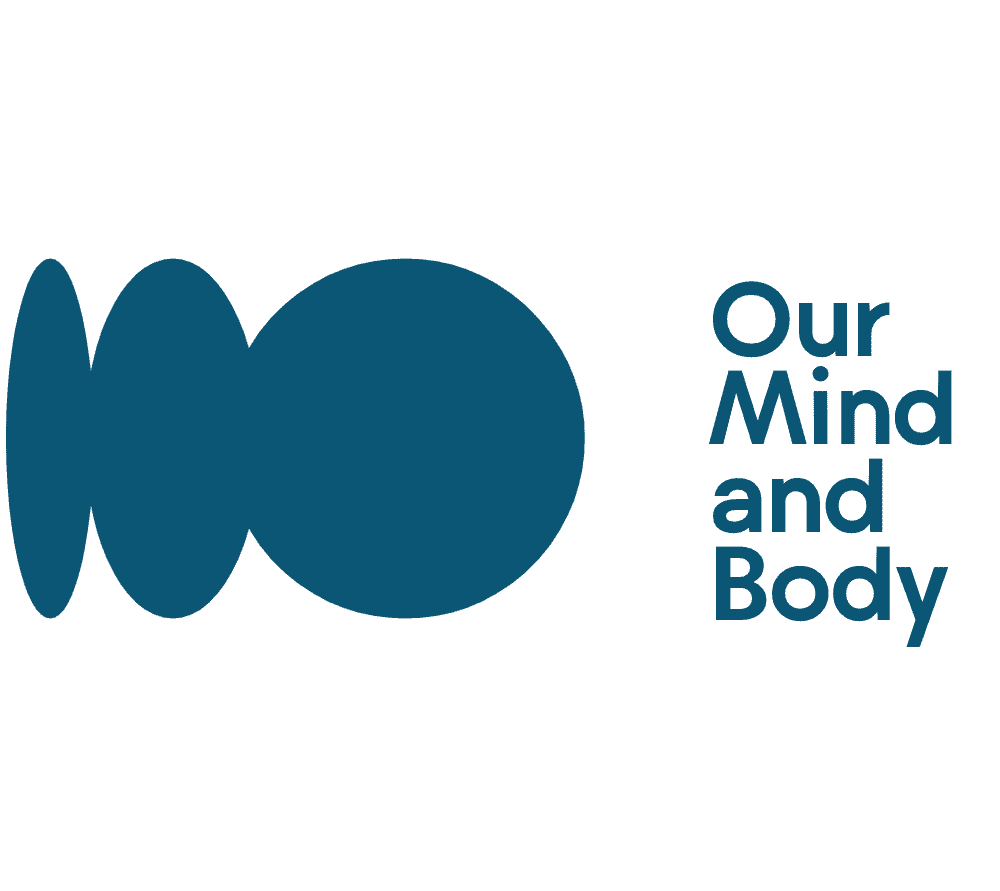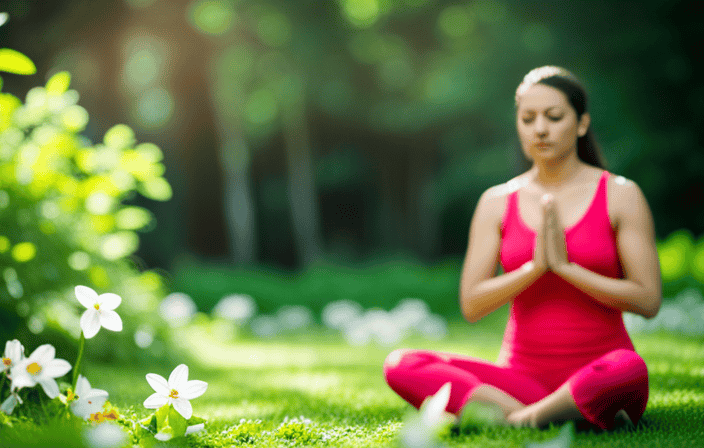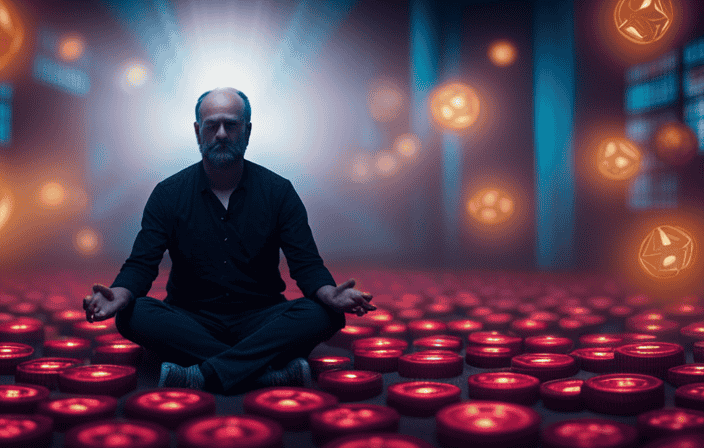Personal Growth
Unlocking Your True Potential: The Power of Self-Discovery and Self-Love

Did you know that the average person has over 60,000 thoughts per day? That’s a lot of mental chatter and it can be difficult to make sense of all these ideas. Taking care of yourself is an important part of self-awareness and reflection that helps you gain insight into who you are as a person. Through thoughtful self-examination and introspection, we can uncover our core values and beliefs while developing emotional intelligence. Self-discovery is not only beneficial for the individual but also those around us since understanding your true identity allows us to live with more intentionality and purpose.
Self-love is essential in order to take care of ourselves both physically and mentally. It involves accepting yourself unconditionally – flaws, weaknesses, strengths and all – without judgment or comparison to others. When we practice self-compassion instead of harsh criticism, we create space for growth rather than stagnation. This fosters greater resilience when life throws curveballs in our direction. As we embrace this journey within ourselves, we open doors for deeper connections with loved ones around us too.
Self-Compassion
Self-compassion is an incredibly powerful tool for learning about yourself and your needs. It involves being mindful of how you respond to difficult situations, taking a nonjudgmental attitude towards yourself and recognizing that everyone makes mistakes. Self-compassionate behavior allows you to forgive yourself when things don’t go as planned or are not perfect; accept the reality of who you are and all the parts that make up your identity, including flaws; love yourself unconditionally even if you feel like you have failed; be kind to yourself in times of need and recognize that no one is perfect. Taking care of oneself with self-compassion can help us learn more about ourselves by increasing our understanding of our own needs, feelings, strengths, weaknesses and goals.
When we practice self-compassion, it helps create an environment where we can nurture ourselves without judgement or criticism. This sets a precedent for healthy relationships with others because it encourages us to extend compassionate behaviors outwardly rather than focusing on negativity or judgment from other people. Practicing self-nurturing behaviours such as creating boundaries around what tasks we take on throughout the day, setting aside time for relaxation activities and engaging in positive affirmations allow us to better understand our limits which leads to greater insight into ourselves and what works best for us overall.
Self-Nurturing Behaviours
Self-nurturing behaviours are activities that can be used to promote self-care, self-love and self-reflection. They allow us to take care of ourselves in a sustainable way, by giving our mind and body the attention it deserves. By engaging in these practices we can gain insight into how we think, feel and behave – allowing us to better understand ourselves.
There are many ways to nurture yourself each day; here are some simple yet effective strategies:
1) Make time for yourself – dedicate at least 5 minutes of your day for solo reflection or meditation.
2) Exercise regularly – find an activity you enjoy doing (e.g., running, yoga, swimming etc.) and make it part of your daily routine.
3) Pamper yourself – indulge in beauty treatments such as manicures/pedicures or treat yourself to a massage once in a while.
4) Get creative – spend time on crafts or hobbies that bring out your artistic side.
5) Eat healthily – nourish your body with nutritious foods that will give you energy and leave you feeling satisfied.
6) Connect with nature– go outdoors and appreciate the natural world around you; listening to birds singing or watching clouds drift by can provide peace of mind.
7) Spend quality time with friends & family – connect with people who support, uplift and encourage you.
8 ) Unplug from technology – set aside some time away from screens so you can relax without any distractions .
9) Practice gratitude– write down three positive things about your life every morning before starting your day ; this will help put things into perspective when times get tough . 10) Give back– volunteer your time helping those less fortunate than you; seeing the joy experienced through acts of kindness is truly rewarding .
By implementing even just one of these strategies into our lives , we can cultivate greater levels of self-care , love , appreciation , understanding , respect for ourselves and others – all essential components for living a more fulfilling existence .
Self-Respect
We all have the right to be respected by others, but what about respecting ourselves? Self-respect is a key component of taking care of oneself and can often be overlooked. Respect for yourself means having inner worth, valuing your choices, and treating yourself with kindness and respect. By developing self-respecting behaviours you can learn more about who you are and how to take better care of yourself.
Self-respect begins with accepting responsibility for who you are and acknowledging that no one else has control over your life except for yourself. It also involves understanding that not everyone will like or agree with your decisions, but that doesn’t make them any less valid. Being self-respectful means setting boundaries when necessary, saying ‘no’ when something isn’t comfortable for you, and being honest in your thoughts and actions. This allows us to stay true to our values while still maintaining our sense of self-worth.
Cultivating an attitude of self-acceptance helps us develop higher levels of confidence in ourselves which can lead to feeling empowered in both small and large ways. Practicing self-compassion gives us permission to forgive ourselves when we make mistakes without beating ourselves up unnecessarily; it teaches us resilience in times of challenge rather than succumbing to feelings of unworthiness or guilt. All these qualities allow us to recognize our worth as individuals so we can live healthier lives both mentally and physically.
By examining our behaviour through the lens of self-respect we gain insight into how important it is for us maintain healthy habits throughout our lives.
Habits Of Healthy Living
Taking care of yourself can help you learn valuable information about who you really are, and how to live a healthier life. A healthy lifestyle requires regular physical activity, nutritious meals, self-care habits and mindful living.
Here’s a bullet point list of the top 10 things we can learn from taking better care of ourselves:
- Eating healthy foods helps us become more aware of our body’s nutritional needs.
- Exercise routines give us an outlet for releasing stress and promoting mental clarity.
- Self-care habits such as getting enough sleep, engaging in relaxation activities or practicing meditation can help us manage difficult emotions and stay balanced during times of uncertainty.
We also need to be mindful when it comes to making decisions about our health and wellbeing. Learning to balance work with leisure time is essential for maintaining energy levels throughout the day. Additionally, developing positive relationships with friends and family members can provide support during challenging moments in life. Lastly, setting realistic goals allows us to focus on what truly matters while staying motivated towards achieving them.
By cultivating these habits of healthy living, we gain insight into our own values, strengths and weaknesses – allowing us to make informed choices that benefit ourselves in both the short term and long run. Mental health and wellbeing go hand-in-hand with physical well-being; thus understanding how best to take care of ourselves will ultimately lead to improved overall health and happiness.
Mental Health And Wellbeing
When it comes to taking care of yourself, there are many things you can learn about yourself. Here are the top 10:
1) Mental Health | Developing healthy habits is key for maintaining good mental health. Taking time for self-care and incorporating mindful living into your daily routine will help keep stress levels low and promote a more balanced lifestyle.
2) Self Awareness | Being aware of how you think, feel and respond in different situations helps you better understand yourself and make informed decisions that honor who you are.
3) Wellbeing | It’s important to identify what makes you feel happy, fulfilled and energized since this will be helpful when finding activities or tasks that bring joy into your life.
| Physical Activity | Meditation | Social Connections |
|---|---|---|
| Exercise regularly | Practice breathing | Make time for friends |
| Eat nutritious food | Mindful Activities | Reach out to family |
| Get adequate sleep | Journal Writing | Join online forums |
4) Balance & Protection | Making sure we strike an equilibrium between work, rest, leisure activities and relationships with others protects us from overworking or overexerting ourselves which can lead to burnout or illness. 5) Stress Management Strategies Knowing how to cope with challenging emotions like anger or frustration is essential if we want to maintain our wellbeing. Identifying effective strategies such as deep breathing or positive affirmations empowers us by teaching us how to regulate difficult emotions rather than avoiding them altogether. 6) Values Clarification Knowing the values which guide our lives helps prioritize our goals and motivations so that we’re working towards something meaningful instead of feeling lost in a sea of uncertainty. 7) Personal Strengths Acknowledging personal strengths gives us a sense of confidence knowing that we have unique gifts which allow us to contribute positively in various aspects of life whether it’s at home, school or work. 8) Prioritizing Needs Understanding basic needs like food water, shelter etc., allows us to recognize where these need attention first before turning towards other areas needing improvement 9) Adaptability Adopting an attitude of flexibility enables us to adapt quickly in ever changing environments without becoming overwhelmed 10 ) Reflection Regularly reflecting on recent experiences builds insight allowing us trace patterns helping gain clarity around what works best for us moving forward.
Understanding stress levels plays an integral role in managing overall wellbeing therefore examining why they arise along with ways they can be managed effectively is equally important
Understanding Stress Levels
The elephant in the room is stress. It lurks around us, creeping into our lives like a silent predator and can leave us feeling exhausted and overwhelmed if we don’t take care of ourselves. Understanding your own stress levels and how to manage them is essential for maintaining good mental health. Here are ten things you can learn about yourself from how you take care of your stress:
1) How aware you are of your triggers – do certain people or situations cause more stress than others?
2) What areas of life need extra attention – what activities help you relax and restore balance?
3) Your coping mechanisms – when faced with stressful situations, which strategies work best for calming down?
4) When it’s time to step away – learning to recognize when it’s time to pause, regroup and recharge.
5) Effective communication skills – understanding how to express yourself clearly so that both parties feel heard.
6) Regular self-reflection – taking time out each day to check in on your thoughts and feelings.
7) Identifying unhealthy habits – recognizing patterns that lead to negative behavior such as procrastination or avoidance.
8) Knowing when to seek professional help– being able to ask for support if needed without fear or shame.
9) Healthy boundaries – having clear personal limits that keep relationships balanced and respectful.
10) Self-compassion – showing kindness towards oneself during times of difficulty instead of criticism or judgement.
By paying attention to these aspects of managing stress, we become better equipped at handling difficult moments with greater ease and resilience while developing healthier ways of looking after ourselves both mentally and physically. As we understand our own unique needs, we become empowered with the strength necessary for dealing with whatever comes our way in life; allowing us to move forward confidently towards achieving our goals. With this newfound knowledge, let’s explore further by delving into the important topic of time management!
Time Management
Time is a precious commodity, and managing it efficiently can help us to maximize our potential. Being conscious of how we use our time allows us to make better decisions about the activities that will lead to greater success in both our personal and professional lives. Here are some tips for improving your time management skills:
- Prioritize tasks based on importance rather than urgency – by focusing first on those tasks with the most impact or value you can ensure that you stay productive even when faced with multiple deadlines.
- Break down larger projects into smaller chunks – this makes them more manageable, as well as helping you to identify any areas where further research or resources may be needed.
- Work smarter, not harder – focus on efficiency over volume; by making small tweaks to your workflow such as automating repetitive tasks you can save yourself valuable minutes each day.
These simple changes in habits can have an immediate positive effect on productivity levels, allowing for more quality work within shorter periods of time. With effective time management comes improved stress levels too, since there’s less pressure to complete things before certain deadlines. Leveraging these strategies will also enable increased focus and clarity which helps uncover new opportunities for growth and development. By taking control of our own schedules, we create an environment where learning from experiences becomes easier — setting ourselves up for long-term success! To continue developing healthy self-care practices it’s important to learn how to set personal boundaries…
Personal Boundaries
It is estimated that about 90% of us have difficulty setting personal boundaries, which can lead to a lack of self-protection and assertiveness skills. Therefore, understanding how you take care of yourself involves learning how to set limits with your time and energy in order to maintain healthy relationships and respect for your own needs.
In terms of boundary setting, it means recognizing when someone or something is asking too much from you. This could be anything from saying “no” to requests at work or drawing the line between a friend who has become too demanding. It also includes being aware of triggers that make you feel uncomfortable so that you can avoid situations where those feelings arise in the first place. Additionally, it is important to understand what your physical boundaries are such as not allowing someone else to hug or touch you without consent. All these strategies help ensure that we are staying true to ourselves and taking appropriate steps towards self-preservation.
At the same time, it’s essential that we don’t forget our limitations while still preserving our safety and peace of mind. Learning how to balance this fine line will help us develop healthier relationships with others while ensuring that we honor our own needs along the way. In other words, creating clear personal boundaries allows us to protect ourselves while remaining open minded and compassionate toward others – two qualities key for successful communication and meaningful connections in life.
From understanding how best to manage our time demands down to knowing when enough is enough, developing an appreciation for what we have within ourselves helps create a deeper level of self-awareness so vital in cultivating inner well-being. Appreciation for one’s existence leads into insight on values and purpose in life – topics explored further in the subsequent section about ‘meaningful living’.
Appreciation For What You Have
Appreciating what you have and taking the time to recognize your blessings is an important part of self-care. It’s easy to get caught up in negative thoughts or feelings, but it’s essential to take a step back and try to appreciate all that life has offered us—even if we don’t always see it right away. Practicing gratitude for moments throughout our day can help shift our perspectives from lack to abundance and open our hearts to accepting ourselves as we are.
Recognizing how much there is in life that we should be grateful for can bring about a sense of contentment with who we are and where we are at this moment in time. This doesn’t mean that everything is perfect, but rather than focusing on what we don’t have, valuing our lives for their potential helps us better navigate any struggles or hardships. Appreciation isn’t just something that happens when things go well; showing appreciation even during difficult times serves as a reminder that it won’t last forever.
Being able to find some sort of joy or acceptance within challenging situations allows us to move forward more quickly with grace and resilience. Cultivating an attitude of appreciation helps us stay focused on the good instead of getting stuck in cycles of worry or fear. Doing so will provide comfort during troubling times while also helping us grow into healthier versions of ourselves each and every day. With these practices, we can start creating habits which foster self-love and lead towards a life full of purpose and meaning.
Practicing Gratitude
Gratitude is a powerful tool for unlocking inner peace and contentment. When you practice gratitude, you are taking the time to appreciate yourself and all that life has to offer. By expressing gratitude, you open up more room in your heart and mind for joy and happiness. Taking part in a regular gratitude practice can help you learn about yourself by recognizing what brings you joy, being mindful of how others impact your life, and understanding how to be thankful even when things feel difficult or overwhelming.
One way to deepen your connection with gratitude is through journaling. Reflect on moments where feeling grateful was easy – like spending time with family or friends, appreciating nature, or simply enjoying an activity that made you happy. Then take some time to think deeply about those experiences. What did they bring out in you? How did it make you feel? Use these reflections as an opportunity to dive deeper into self-exploration while also cultivating appreciation for the present moment.
Another way to express gratitude is through speaking affirmations out loud each day. Start by saying something simple such as “I am strong” or “I am capable of achieving my goals” then gradually add other positive statements such as “I appreciate myself” or “I trust in my abilities” until eventually creating a list of affirmations that resonates with who you are at this very moment in time. Through this daily practice, not only will your confidence grow but so too will your overall sense of wellbeing – allowing you to gain insight into yourself from the comfort of self-acceptance and love.
Accepting Your Strengths And Weaknesses
Now that you’ve taken the time to practice gratitude, it’s essential to accept your strengths and weaknesses. This can be difficult because many of us tend to focus on our shortcomings rather than recognizing our positive traits. However, if we take care of ourselves through self-acceptance, strength-building and accepting weaknesses as part of who we are, then we will develop a better understanding of ourselves.
The first step in this process is identifying your strengths. These may include physical abilities such as running or playing an instrument; intellectual capabilities like problem solving or writing skills; emotional qualities such as empathy for others or personal resilience; or creative talents like drawing or painting. Making a list of these attributes can help remind you just how capable you are and give you confidence when facing challenges ahead.
It’s equally important to recognize our limitations too. It might not always feel easy but acknowledging areas where we need more work allows us to grow and learn from mistakes. We should never judge ourselves harshly – instead use acceptance and kindness towards yourself so that even if something doesn’t quite go right, there’s always room for improvement next time around.
Understanding what makes us unique helps us appreciate ourselves fully and become more aware of which aspects of life bring us joy – whether it’s spending time with family or honing a specific skill set. Taking care of yourself by doing things that make you feel good is the key to learning about who you really are!
Learning From Mistakes
According to a study by the American Psychological Association, 70% of adults have made mistakes in their lives that they regret. Learning from our mistakes is key for us to become successful and reach our full potential. Mistakes are not only inevitable but also crucial for growth and development.
Failure can be daunting and it might even make us feel like giving up. However, if we accept our mistake(s) and take responsibility for them, then failure will no longer seem so intimidating. It’s important to acknowledge what went wrong or why you acted mistakenly so that you can learn from the experience and move on with greater self-awareness. By understanding where your own limitations lie and taking steps to improve on these weaknesses, you can create positive change within yourself which will ultimately lead to personal growth. Additionally, embracing failures makes learning easier because it allows individuals to look more objectively at their performance without fear of judgement or criticism from others – this helps build confidence in oneself as well as resilience against future unsuccessful attempts.
We should remember that every mistake teaches us something valuable; whether its patience, humility, or perseverance – whatever lesson we need to learn most is likely contained within the error itself. Understanding the importance of making mistakes enables one to adopt a healthier attitude towards life’s challenges; it allows us to focus less on perfectionism and instead prioritize ourselves over external expectations.
Prioritizing Yourself
Making mistakes is an inevitable part of life. And learning from them and growing as a result can be a powerful tool for personal development. However, sometimes we need to take a step back before taking that next big leap forward in our lives. This means prioritizing yourself and the self-care practices you use to nurture your body and mind.
When we prioritize ourselves, it’s not just about putting ourselves first or having time alone – though these are important factors too. It’s also about being mindful of how we treat ourselves mentally and physically on a daily basis. Are you allowing yourself enough rest? Are you engaging in activities that bring joy rather than stress? Do you give yourself permission to say ‘no’ when needed?
Self-care isn’t selfish; it’s essential for maintaining physical and mental wellbeing so that we have the energy necessary to serve others. To learn more about yourself, pay attention to how well you’re taking care of yourself. Make sure you make your health and wellness needs a priority, without feeling guilty or ashamed for doing so. By nurturing your own wellbeing, you’ll discover new things about who you are and be able to live with greater purpose, passion, and fulfilment – all while making connections with others around you!
Making Connections With Others
It’s easy to take care of our physical and mental health without ever thinking about connecting with others. But forming relationships, socializing with people, and interacting with strangers can all be beneficial for our wellbeing too. Taking the time to build connections is an important part of taking care of ourselves.
When we make meaningful connections with those around us, it gives us a sense of belonging that can help boost self-esteem, reduce stress levels, promote better communication skills and even improve overall happiness. It also provides valuable opportunities for learning new perspectives from different walks of life which can benefit how we view ourselves as well.
Making connections doesn’t have to mean huge commitments either. Even something as simple as striking up conversation at the store or attending a community event once in awhile can lead to lasting friendships or unexpected experiences that enrich your life in ways you never thought possible. So no matter where you are on your journey of self discovery – don’t forget the importance of forming relationships and engaging with others along the way!
Frequently Asked Questions
How Can I Effectively Manage My Time?
Time management is a key factor in staying organized and achieving life balance. It’s important to develop good time discipline so that you can make the most of your days, weeks, and months. Time planning is essential for setting yourself up for success; it allows you to prioritize tasks, plan ahead, and stay on top of deadlines.
Creating an effective system for managing your time can be quite daunting at first. To get started, it helps to break down large tasks into smaller chunks that are easier to manage. This will help you feel more focused and motivated as you move through each task one by one. Additionally, set clear goals and objectives with realistic timelines to ensure that nothing slips through the cracks. Having a checklist or calendar can also be helpful in keeping track of tasks and deadlines.
Finally, it’s important to remember that having a healthy relationship with time takes practice – don’t expect perfection right away! Take breaks when needed throughout the day and give yourself grace if things don’t go according to plan. With consistent effort over time, you’ll gain control of how you spend your valuable hours each day and become better equipped to take care of yourself in the process.
How Can I Learn To Appreciate And Respect Myself More?
Learning to appreciate and respect ourselves is fundamental to personal growth. With self-appreciation, we can cultivate a healthy relationship with our own emotions and thoughts. With self-respect, we are able to recognize our worth in life and value ourselves more deeply. By developing these qualities within ourselves, we gain greater insight into who we are as individuals and how we relate to the world around us.
Self-awareness is an important factor in cultivating both appreciation and respect for oneself. It involves recognizing our strengths and weaknesses while also understanding our values and beliefs. Through this process of introspection, we can learn to become better acquainted with ourselves so that we may lead meaningful lives that align with our core values. Additionally, increasing self-confidence allows us to live authentically without fear or shame about expressing who we really are.
Gaining knowledge through self-development activities such as reading books or taking classes can help foster feelings of confidence in ourselves and give us new perspectives on life. Other practical activities like journaling, mindfulness meditation, yoga or other forms of exercise can be beneficial for learning more about ourselves too. Here’s a list of some additional ideas:
• Make time for creative pursuits like painting or writing poetry;
• Take part in volunteer work;
• Have meaningful conversations with trusted friends or family members about your experiences in life thus far.
By engaging in these types of activities, we open up channels of communication between our inner selves and outer worlds – leading us closer towards achieving true self-love! This journey requires patience and dedication but ultimately yields powerful results when it comes to feeling secure in one’s identity. In turn, this newfound sense of security will enable us to make healthier decisions throughout all areas of our lives – benefiting not only ourselves but those around us too!
What Strategies Can I Use To Cope With Stress?
The feeling of being overwhelmed by stress is all too familiar. Feeling like you’re walking through life with a heavy weight on your shoulders can be difficult to cope with and it’s essential to take the necessary steps in order to manage it. There are many effective strategies for dealing with stress, from self-care practices such as meditation and mindfulness, to more structured approaches like seeking professional help or forming healthy habits. Learning how to apply different stress management techniques can help you better understand yourself and develop a healthier relationship with yourself.
It’s important to remember that there is no one-size-fits-all approach when it comes to managing stress – what works for some may not work for others. That said, there are certain coping mechanisms that can be utilized across the board when it comes to dealing with stressful situations. Self-compassion is key; try reframing negative thoughts into positive ones and practice empathy towards yourself whenever possible. Taking breaks throughout the day and engaging in calming activities such as yoga or reading can also help relieve tension and ease anxiety levels. Additionally, making sure you get adequate sleep each night is an important step in maintaining good mental health overall.
When learning how to respond effectively to stressful events, don’t forget about your social relationships either! Spending time with people who lift you up instead of bringing you down will have a huge impact on your mental wellbeing and provide invaluable support in times of need. To properly care for yourself during moments of high pressure, make sure you recognize the importance of taking action against any overwhelming emotions rather than letting them simmer until they become unmanageable – this could mean talking things out with friends or family, writing down your thoughts or exploring new hobbies outside of work or school commitments. No matter which strategy(ies) you choose, actively working on reducing stress levels should always remain top priority – both for now and for future benefit!
How Can I Create A Healthy Lifestyle For Myself?
Creating a healthy lifestyle for myself is an important step towards finding balance in all areas of my life. It doesn’t have to be complicated or time-consuming; it just needs to reflect the respect I hold for myself, and help me manage stress while also nurturing relationships with those around me.
I start by taking some time to assess what’s most important to me. That could mean developing better habits like proper sleep hygiene, eating nutritious meals, or using mindful movement as a form of self-care. These are great ways to practice basic self-respect and build a foundation for good health overall.
Another key element of creating a healthy lifestyle is understanding how to use time management effectively. Taking on too many commitments at once can lead to burnout if I don’t value my own limits and prioritize tasks accordingly. Learning when to say no allows me more freedom – both mentally and physically – so that I’m not overwhelmed by obligations beyond my control.
Finally, recognizing the importance of stress management has been essential for maintaining my wellbeing over time. Whether it’s exercising regularly, meditating daily, or simply taking frequent breaks throughout the day, having strategies in place helps me stay grounded during times of emotional unrest. Additionally, making sure I invest quality energy into meaningful relationships – whether they’re with family members or friends – gives me extra motivation to keep up with healthier habits over the long run.
By cultivating these habits together, I am able to create a holistic environment where physical well-being goes hand-in-hand with mental clarity and social connection. In this way, caring for myself becomes something enjoyable instead of feeling like an obligation!
How Can I Build Meaningful Connections With Other People?
Creating meaningful connections with other people is an essential part of a healthy lifestyle. When we form relationships, it helps us feel more connected to the world around us and can even help reduce stress levels. We also benefit from having someone to talk to, which in turn can help promote physical and mental wellbeing.
Developing social connections takes time and effort but there are some simple steps you can take that will make connecting with others easier. For example, by being open and honest about yourself, your values, passions and beliefs, you are creating an environment of understanding between yourself and those around you. It’s important to be mindful not to judge or criticize others while engaging in conversation as this can create tension rather than connection.
Making time for activities like volunteering or joining clubs related to something you’re passionate about are great ways to meet new people who share similar interests. These types of opportunities allow for meaningful conversations that may lead to lasting relationships over time. Additionally, if online socializing is more your thing, platforms such as Twitter and Facebook offer plenty of chances to connect with groups or individuals with whom you have things in common – all without leaving home!
At the end of the day, building meaningful connections goes beyond simply meeting new people; it’s about fostering genuine relationships based on trust and respect for one another. With patience and dedication, these kinds of bonds can bring immense joy into our lives – so why not give them a chance?
Conclusion
Taking care of yourself is an important step to understanding who you are and what makes you happy. It’s not just about the physical aspects, it’s also about learning how to manage your time better, appreciating yourself for all that you do, managing stress in healthy ways, creating a lifestyle that works for you, and connecting with others in meaningful ways. When we take the time to invest in ourselves, our lives can become richer and fuller than ever before!
When we practice self-care on a regular basis—even if it’s something small like taking a few minutes each day to meditate or read—we can positively transform our mental health in unimaginable ways. We learn more about ourselves because we open up new avenues of growth while developing healthier habits that will serve us well into our future. Self-care isn’t just a fad; it’s here to stay and will only bring endless rewards as long as we make sure to keep investing in ourselves every single day.
The top 10 things you can learn from taking care of yourself should encourage everyone to begin their journey today. From getting organized and setting goals to building connections with those around them and showing themselves some love—it’s never too late or too early start living life at its fullest potential through proper self-care!
Meet Nadi, the soulful writer and explorer of inner realms who graces OurMindAndBody.com with her profound insights and heartfelt wisdom. With a profound passion for mindfulness, meditation, and spiritual growth, Nadi weaves words that touch the hearts and minds of readers, leaving a lasting impact on their well-being journey.
Rooted in a background of philosophy and psychology, Nadi’s curiosity about the human mind and the mysteries of the soul led her on a transformative path of self-discovery. Drawn to the transformative power of mindfulness and meditation, she embarked on a quest to understand the intricacies of these practices, not only for her own growth but also to inspire others to embark on their own inner journeys.
Personal Growth
Unlocking Personal Fulfillment: Embracing Learning, Travel, Fitness, And Spiritual Growth

Are you prepared to achieve personal satisfaction and welcome a lifestyle filled with education, exploration, wellness, and spiritual development?
Imagine a journey of self-discovery, where each step brings you closer to your passions and purpose.
In this article, I will guide you through the transformative power of knowledge, the importance of career advancement, and the benefits of prioritizing mental and physical well-being.
Get ready to embark on a path that will redefine your life, boost your confidence, and allow you to experience the world in a whole new way.
Key Takeaways
- Learning and personal growth are essential for career advancement and should be pursued through education and the pursuit of passions.
- Traveling promotes self-discovery, personal growth, and exposure to new cultures and perspectives.
- Prioritizing fitness and mental health improves overall well-being, reduces stress and anxiety, and enhances self-confidence.
- Overcoming obstacles, pursuing passions, and engaging in spiritual growth contribute to a fulfilled life.
4 Things for Personal Growth
I must actively pursue personal growth by embracing learning, travel, fitness, and spiritual growth in order to unlock my personal fulfillment.
It is through these experiences that I can truly discover my potential and live a life of purpose and meaning.
Learning is the key to career advancement and a fulfilling life. It opens doors to new opportunities and expands my knowledge and skills.
Traveling allows me to explore new cultures, broaden my perspectives, and step out of my comfort zone.
Fitness not only improves my physical health but also boosts my mental well-being, giving me the confidence and strength to overcome challenges.
Lastly, spiritual growth connects me with something greater than myself, providing guidance, peace, and a sense of purpose.
By actively embracing these pillars of personal growth, I can unlock my full potential and live a life filled with fulfillment and joy.
Importance of Knowledge
Gaining knowledge is essential for career advancement and personal development. It is through knowledge that we can expand our horizons, challenge ourselves, and unlock new opportunities.
Here are three reasons why knowledge is so important:
-
Knowledge opens doors: With a solid foundation of knowledge, we can pursue new career paths, take on challenging projects, and stand out in a competitive job market. By continuously learning and acquiring new skills, we position ourselves for success and growth.
-
Knowledge empowers us: When we have knowledge, we feel confident and capable. It gives us the tools to navigate through life’s challenges and make informed decisions. With knowledge, we can face obstacles head-on and overcome them with resilience.
-
Knowledge fuels personal growth: Learning is a lifelong process, and it is through knowledge that we can continue to evolve and grow as individuals. It broadens our perspectives, deepens our understanding of the world, and helps us discover our true passions and purpose.
So, let’s embrace the power of knowledge and never stop learning. It is the key to unlocking personal fulfillment and achieving our greatest potential.
Career Advancement
Expanding my knowledge and skills is crucial for advancing my career. In today’s fast-paced and competitive world, staying stagnant is not an option. By continuously learning and seeking personal growth, I am equipping myself with the tools necessary to excel in my chosen field.
Whether it’s through further education, attending workshops, or seeking mentorship, I am taking proactive steps to stay ahead. Embracing a growth mindset and being open to new ideas and perspectives will not only enhance my expertise but also make me a valuable asset to any organization.
Every opportunity for learning is a chance for me to improve and stand out from the crowd. So, I choose to embrace the challenge, push my boundaries, and unlock my full potential, knowing that the rewards of career advancement are well worth the effort.
Financial Concerns
Confronting financial concerns head-on is essential for achieving career advancement. It’s natural to feel intimidated about going back to school or making a career change, but we must overcome these fears in order to unlock our full potential. Here are four powerful ways to tackle financial concerns and pave the way for a fulfilling career:
-
Sell a life insurance policy: Don’t let financial worries hold you back. Consider selling a life insurance policy to alleviate immediate financial burdens and invest in your education.
-
Utilize online calculators: Determine the value of your policy using online calculators. This will give you a clear understanding of the funds you can receive and how they can support your career goals.
-
Pursue childhood dreams or newfound passions: Don’t let excuses stop you from pursuing what truly makes you happy. Embrace your passions and let determination guide you towards achieving your desired career.
-
Believe in yourself: Remember, life shouldn’t be a chore. By doing what you love, you can create a career that brings you joy and fulfillment. Trust in your abilities and believe that you have what it takes to achieve your goals.
Take control of your financial concerns and open the door to a career that brings you true happiness.
Pursuing Passions
To pursue my passions, I need to focus on what truly brings me joy and take determined action towards achieving my desired career. It’s important to remember that life is too short to settle for anything less than what makes me truly happy.
Whether it’s a childhood dream or a newfound passion, I owe it to myself to pursue it wholeheartedly. It may seem daunting at first, but with determination and perseverance, I can overcome any obstacles that come my way.
I believe that happiness in life is not just a luxury, but a necessity. So I will dismiss any excuses that hold me back and take the necessary steps to make my dreams a reality.
By pursuing my passions, I will unlock a sense of fulfillment and live a life that is truly meaningful to me.
Benefits of Travel
Experiencing new places and cultures broadens my perspective and fosters personal growth. When I travel, I immerse myself in unfamiliar environments, and it’s in these moments of exploration that I truly discover who I am.
The excitement of imagining train rides through the wilderness or trekking through the jungle fuels my sense of adventure and pushes me out of my comfort zone. As I try new activities and step into the unknown, I find myself uncovering hidden passions and redefining my personal identity.
Traveling not only boosts my confidence but also encourages self-reflection and introspection. It’s in these moments of solitude that I gain a deeper understanding of myself and the world around me.
So, I embrace the beauty of travel and allow it to shape me into a more well-rounded and fulfilled individual.
Expanding the Mind
Exploring new ideas and perspectives has opened my mind to endless possibilities. Traveling has allowed me to expand my horizons and break free from the limitations of my comfort zone. It has shown me that there is so much more to life than what I had previously known.
Through my travels, I have learned three valuable lessons that have deeply impacted my personal growth:
-
Embrace the unknown: Stepping into unfamiliar territory can be intimidating, but it is where true growth happens. It challenges you to adapt, learn, and discover parts of yourself that you never knew existed.
-
Cultivate empathy: Traveling exposes you to different cultures, beliefs, and ways of life. It teaches you to see the world through the eyes of others, fostering a sense of empathy and understanding that can greatly enrich your interactions with people from all walks of life.
-
Embrace the present moment: Traveling forces you to live in the present. It teaches you to appreciate the beauty of each moment, to let go of worries and expectations, and to fully immerse yourself in the experiences that life has to offer.
By embracing these lessons, I have unlocked personal fulfillment and a deeper sense of purpose in my life. I encourage you to embark on your own journey of self-discovery and see how it can transform your perspective on life.
Boosting Confidence
Boosting confidence has been a transformative journey that has empowered me to break free from self-doubt and embrace my true potential.
It all started with small steps, pushing myself outside of my comfort zone and taking on new challenges. Each accomplishment, no matter how small, fueled my belief in myself and my abilities.
I discovered that confidence is not something you are born with; it is something you can cultivate and grow through practice and perseverance. By embracing failure as a learning opportunity and celebrating my successes, I began to see my self-worth and value.
As my confidence grew, so did my courage to pursue my passions and dreams. I realized that I am capable of achieving greatness and that my potential knows no limits.
Boosting my confidence has been the key to unlocking personal fulfillment and living a life of purpose and joy.
Experiencing New Cultures
Now that we have explored the importance of boosting confidence, let’s dive into the exhilarating world of experiencing new cultures.
Traveling to different countries allows us to immerse ourselves in unfamiliar environments and gain a deeper understanding of the world. It opens our minds to diverse perspectives, customs, and traditions.
From tasting exotic cuisine to witnessing breathtaking landmarks, every moment spent exploring a new culture is an opportunity for personal growth and self-discovery.
Stepping out of our comfort zones and embracing the unknown not only broadens our horizons but also builds resilience and adaptability. It teaches us to appreciate the beauty in our differences and find common ground with people from all walks of life.
So, pack your bags, embark on a journey of a lifetime, and let the wonders of experiencing new cultures transform you into a more enlightened and fulfilled individual.
Importance of Fitness
Improving my physical health through regular exercise has been a transformative journey for me. It all started with small steps, like taking walks or going for runs. I realized that I didn’t need a fancy gym membership to prioritize my well-being. The key was finding an exercise routine that I enjoyed and that made me feel good about myself.
Not only did regular exercise reduce my stress and anxiety, but it also released those wonderful endorphins that improved my mood. I also noticed an increase in my self-confidence as I pushed myself to achieve new fitness goals.
Incorporating exercise into my daily routine has enhanced my overall well-being, both mentally and physically. Remember, it’s never too late to start taking care of yourself and embracing a healthier lifestyle.
Physical and Mental Well-being
Taking care of my physical and mental well-being has become a top priority in my life. I have realized that in order to live a fulfilling life, I must prioritize my health.
Regular exercise has not only improved my physical health but has also had a positive impact on my mental well-being. The release of endorphins during exercise has boosted my mood and reduced my stress and anxiety levels.
I have also learned the importance of prioritizing mental health and practicing self-care. Taking breaks and seeking therapy when needed has allowed me to maintain a healthy mindset.
By prioritizing my physical and mental well-being, I have been able to pursue my passions and find fulfillment in all areas of my life.
Remember, taking care of yourself is not selfish, it is necessary for personal growth and overall well-being.
Frequently Asked Questions
How can I overcome financial barriers to pursuing education or a career change?
How can I overcome financial barriers to pursuing education or a career change? By exploring options like selling a life insurance policy or utilizing online calculators to determine its value, I can fund my education and make my dreams a reality.
What are some practical ways to incorporate exercise into my daily routine?
To incorporate exercise into my daily routine, I can start small by taking walks or doing quick workouts at home. Consistency is key, and finding activities I enjoy will help me stay motivated and improve my overall well-being.
How can I prioritize mental health and well-being in my life?
To prioritize my mental health and well-being, I must treat it like a VIP – Very Important Priority! By practicing self-care, seeking support, and taking breaks, I can create a foundation for a fulfilled and balanced life.
What steps can I take to save money and make travel more affordable?
To save money and make travel more affordable, I can start by planning ahead and budgeting for travel expenses. Researching affordable destinations and utilizing travel rewards programs can also help reduce costs and make my travel dreams a reality.
How can I cultivate spiritual growth and enhance my personal fulfillment?
To cultivate spiritual growth and enhance personal fulfillment, I must explore and embrace activities that align with my values and beliefs. Through self-reflection, meditation, and engaging in meaningful practices, I can deepen my spiritual connection and find true fulfillment.
Conclusion
In conclusion, unlocking personal fulfillment is a journey that involves embracing learning, travel, fitness, and spiritual growth.
By continuously seeking knowledge, we can advance in our careers and pursue our passions. For example, Sarah, a single mother, went back to school while selling life insurance policies to fund her education. Through her determination and hard work, she not only achieved her dream of becoming a nurse but also inspired her children to never give up on their goals.
Sarah’s story reminds us that with perseverance, anything is possible.
So let us embrace personal growth, step out of our comfort zones, and unlock the potential within us to live a fulfilled life.
Meet Kalinda, the passionate and visionary Editor-in-Chief of OurMindAndBody.com. Kalinda is a beacon of light in the realm of holistic well-being, and her mission is to positively impact the lives of others by inspiring them to embrace a healthier and more fulfilling lifestyle.
With a deep-rooted love for meditation, yoga, and spirituality, Kalinda’s journey toward self-discovery and personal growth started at a young age. She found solace and strength in these practices, which not only helped her cope with the challenges of life but also provided her with a profound sense of purpose. Eager to share the transformative power of these ancient disciplines, Kalinda embarked on a path to spread awareness and understanding.
Personal Growth
Unleashing Your Spiritual Gifts: A Path To Personal Growth And Healing

Interestingly, a lot of us carry within us dormant spiritual abilities that are just waiting to be awakened. These inherent talents have the capacity to fuel our personal development and healing, thus drawing us nearer to our authentic selves and the divine.
By tapping into these innate abilities, we embark on a transformative journey of self-discovery and connection. In this article, we will explore the profound impact of unleashing our spiritual gifts, how to identify and develop them, and the challenges we may face along the way.
Get ready to embark on a path of personal growth and healing as we unleash the power within.
Key Takeaways
- Unleashing your spiritual gifts can enhance personal growth and development.
- Identifying and developing your spiritual gifts can lead to a sense of fulfillment and satisfaction.
- Utilizing and honoring your spiritual gifts can bring healing, inspiration, and guidance to others.
- Overcoming challenges and embracing your spiritual gifts can contribute to the overall well-being and harmony of society.
What are Spiritual Gifts?
I know that spiritual gifts are unique abilities or talents that we possess, which can enhance our personal growth and development, contribute to the well-being of others, and deepen our connection with the divine.
They are like hidden treasures waiting to be discovered and unleashed. When we explore our divine connections and tap into our spiritual gifts, we unlock our hidden potentials and embark on a transformative journey of self-discovery and healing.
It is through these gifts that we find purpose and fulfillment, making a positive impact on the lives of others. By embracing our spiritual gifts, we not only enhance our overall well-being and happiness but also foster unity and interconnectedness within our communities.
So let us have the courage to explore, unleash, and share our spiritual gifts, for they hold the power to uplift, heal, and transform.
Identifying Your Gifts
Exploring and recognizing our unique talents and abilities is crucial in identifying the spiritual gifts that can contribute to our personal development and overall well-being. It is through this process of self-discovery that we can uncover the passions and interests that ignite our soul and bring us joy. By seeking guidance from mentors or experts in the field, we can gain valuable insights and support in honing our gifts. It is important to trust our intuition and inner guidance, as they often lead us to the areas where we excel. Engaging in regular practice and self-reflection allows us to deepen our understanding of our gifts and refine our skills. Attending workshops, courses, or retreats related to our gifts provides opportunities for growth and learning. Surrounding ourselves with like-minded individuals creates a supportive community that encourages us to embrace our gifts and share them with the world.
Utilizing Your Gifts
Utilizing my spiritual gift allows me to make a meaningful impact on others and contribute to the overall well-being and harmony of society. By maximizing my potential and harnessing my abilities, I am able to bring healing, inspiration, and guidance to those in need.
Through my gift, I have the power to touch lives, uplift spirits, and create positive change. It is a beautiful responsibility that fills me with a sense of purpose and fulfillment.
To fully utilize my gift, I constantly refine and improve my skills. I seek out platforms and organizations where my gift is valued and recognized. I offer my gift with humility and authenticity, always expressing gratitude for its impact.
I also practice self-care to maintain my energy and well-being, setting boundaries to protect my gift from being exploited or drained.
By embracing and utilizing my spiritual gift, I am able to contribute to the greater good and play my part in creating a more compassionate and interconnected world.
Challenges and Impact
Navigating the challenges and impact of my spiritual gift is like walking through a dense forest, where the obstacles and setbacks I encounter along the way only strengthen my determination to bring healing, inspiration, and guidance to others.
It is not always easy to embrace and utilize my gift, especially in a society that often values conformity and follows rigid expectations. But I have learned that overcoming obstacles is an essential part of the journey.
Each challenge I face pushes me to dig deeper within myself, to confront my fears and doubts, and to grow stronger in my abilities. By breaking free from societal norms and expectations, I am able to fully embrace and share my gift, creating a more compassionate and empathetic community.
The impact of unleashing my spiritual gift goes beyond myself, as it inspires others to explore and develop their own gifts. Together, we contribute to the overall well-being and harmony of society, bringing support and healing to those in need.
Frequently Asked Questions
What are some common misconceptions about spiritual gifts?
Misconceptions about spiritual gifts: debunking myths, understanding true nature. Overcoming self-doubt: building self-belief, embracing inner power. It’s important to challenge preconceived notions and trust in the unique gifts we possess for personal growth and healing.
How can I overcome self-doubt and gain confidence in my spiritual gifts?
To overcome self-doubt and build confidence in your spiritual gifts, remember that you are unique and have something valuable to offer. Embrace your strengths, seek support from mentors, and celebrate small victories along the way. You are capable of greatness.
Are there any specific practices or rituals that can help me develop my spiritual gifts?
Meditation practices and energy healing techniques can help develop spiritual gifts. By quieting the mind and tapping into the divine energy, we can deepen our connection and unlock our hidden potentials. Embrace these practices and watch your gifts unfold.
Can spiritual gifts change or evolve over time?
Yes, spiritual gifts can change and evolve over time. As we grow and learn, our understanding and connection with the divine deepens, allowing us to discover new aspects of ourselves and our gifts. Age can also bring wisdom and a deeper understanding of our purpose, which can influence the way our gifts manifest. Embrace the journey of evolution and trust that your gifts will continue to unfold in beautiful ways.
How can I find a balance between using my spiritual gifts and taking care of myself?
Finding balance between using my spiritual gifts and taking care of myself requires self-awareness and boundaries. Prioritize self-care practices that nourish your mind, body, and soul. Remember, to truly help others, we must first take care of ourselves.
Conclusion
As I reflect on the journey of unleashing my spiritual gifts, I am filled with a profound sense of gratitude and wonder.
It is through recognizing and developing these innate abilities that I have experienced personal growth and healing like never before.
Like a butterfly emerging from its cocoon, I have transformed, and I invite you to join me on this transformative path.
Embracing our spiritual gifts is not only a gift to ourselves but also to those around us, as we inspire and uplift each other in ways we never thought possible.
So let us honor our gifts, let us explore and develop them, and together, let us create a harmonious and compassionate world.
Meet Kalinda, the passionate and visionary Editor-in-Chief of OurMindAndBody.com. Kalinda is a beacon of light in the realm of holistic well-being, and her mission is to positively impact the lives of others by inspiring them to embrace a healthier and more fulfilling lifestyle.
With a deep-rooted love for meditation, yoga, and spirituality, Kalinda’s journey toward self-discovery and personal growth started at a young age. She found solace and strength in these practices, which not only helped her cope with the challenges of life but also provided her with a profound sense of purpose. Eager to share the transformative power of these ancient disciplines, Kalinda embarked on a path to spread awareness and understanding.
Personal Growth
Deepen Your Spiritual Journey: Essential Disciplines For Growth

Setting out on a spiritual quest is a deeply meaningful endeavor that demands commitment, strictness, and loyalty.
Delving deeper into our connection with the divine necessitates the practice of essential disciplines. From prayer to fasting, meditation to study, simplicity to solitude, and service, these sacred rituals serve as the stepping stones towards personal growth and spiritual enlightenment.
Each discipline, like a melody of the soul, intertwines with the others, forming a symphony that resonates within us, leading us towards a profound understanding of ourselves and a stronger connection with the divine.
Key Takeaways
- Prayer is a crucial spiritual discipline that fosters a deeper connection with God, brings peace and comfort, and has physical and mental health benefits.
- Fasting is a practice that promotes spiritual growth, enhances self-control, and detoxifies the body while deepening the relationship with a higher power.
- Meditation is a significant discipline that increases inner peace, promotes relaxation and focus, and strengthens the connection with the universe.
- Study is an important discipline for deepening understanding and knowledge of God, providing guidance for daily life, and contributing to personal transformation.
What is Prayer?
Prayer is an essential spiritual discipline that I engage in regularly to deepen my relationship with God and find peace, hope, and comfort during difficult times.
I believe that prayer is not only a way to communicate with God, but also a means to cultivate a deeper connection with a higher power.
I have found that different methods of prayer, such as prayers of thanks, intercession, and meditation, allow me to approach prayer in a way that feels most authentic to me.
Prayer not only brings solace and guidance, but it also has a profound impact on my mental health. Regular prayer practice has helped me find moments of introspection, reflection, surrender, and gratitude.
It has positively impacted my overall well-being and has provided a source of strength and resilience during challenging times.
Benefits of Fasting
Fasting is like a spiritual cleanse, allowing me to strip away the distractions of life and focus on nourishing my soul. Through the discipline of fasting, I have discovered numerous benefits that have deepened my spiritual journey.
Fasting benefits my physical body by detoxifying it and improving digestion, leading to increased resistance to diseases.
Fasting benefits my mental and emotional well-being by enhancing self-control, mental clarity, and determination.
Fasting benefits my spiritual growth by deepening my relationship with a higher power through intensified prayer and self-reflection.
Fasting and spiritual growth go hand in hand, as this practice strengthens my conscious awareness, resistance to temptation, and willpower. It allows me to gain control over my desires and strengthens my connection with a higher power.
Fasting has truly been a transformative experience on my spiritual journey, bringing me closer to God and helping me cultivate a deeper sense of purpose and fulfillment.
Types of Meditation
Meditation has various types, such as mindfulness, guided visualization, mantra repetition, loving-kindness, and chakra meditation. All of these types can enhance my spirituality and increase inner peace and joy.
Mindfulness meditation allows me to be fully present in the moment, observing my thoughts and emotions without judgment. It helps me cultivate a sense of calmness, relaxation, and well-being. By focusing on my breath and bringing my attention to the present moment, I can let go of worries and anxieties. This allows me to experience a deeper connection with myself and the world around me.
Chakra meditation, on the other hand, involves focusing on the different energy centers in the body, promoting balance and harmony. It helps me tap into my intuition, creativity, and spiritual connection.
Through these types of meditation, I can deepen my spiritual journey and experience a greater sense of inner peace and joy.
The Importance of Study
Studying is a vital aspect of my spiritual development as it allows me to gain a deeper understanding of my faith and cultivate wisdom and discernment in my daily life. Through various study methods such as Bible studies and devotional readings, I am able to dive into the teachings and principles that guide my beliefs. This dedicated time of study not only enhances my spiritual growth but also strengthens my personal connection with God. It contributes to my personal transformation by providing guidance and clarity on how to live in accordance with my beliefs. The insights I gain through study help me navigate the complexities of life and make decisions that align with my spiritual values. It cultivates awareness of my beliefs and values, allowing me to continually grow and evolve on my spiritual journey.
| Study Methods | Personal Transformation |
|---|---|
| Deepens understanding of faith and teachings | Cultivates wisdom and discernment |
| Provides clarity on living in accordance with beliefs | Contributes to personal growth |
| Develops insights into spiritual principles | Strengthens connection with God |
| Cultivates awareness of beliefs and values | Fosters a deeper understanding of oneself |
| Enhances self-awareness | Improves mental and emotional well-being |
Simplicity and Solitude
Simplicity and solitude have a profound impact on my spiritual well-being. They allow me to cultivate inner peace and clarity. Exploring minimalism has taught me to focus on what truly matters in life – my relationship with God. By removing distractions and living a life of simplicity, I am able to create space for deeper connection and reflection.
It is in these moments of solitude that I find solace and rejuvenation. Finding solitude in nature has been particularly transformative for me. The serene beauty of the natural world reminds me of God’s presence and fills me with awe and gratitude. In the stillness of the outdoors, I can hear His gentle whispers and feel His guiding hand.
Simplicity and solitude are essential disciplines that continue to deepen my spiritual journey and bring me closer to God.
The Power of Service
Through the power of service, I have witnessed firsthand the transformative impact of love and compassion on individuals and communities. It is truly remarkable how a simple act of kindness can bring joy, healing, and hope to those in need. When we engage in service, we not only cultivate compassion within ourselves, but we also create a ripple effect that spreads positivity and kindness throughout the world.
Service is not just about giving, but it is also about receiving. It is through serving others that we often find a deeper sense of purpose and fulfillment. By aligning our actions with our spiritual values, we not only express our love and gratitude, but we also deepen our spiritual connection and foster personal growth.
In my own journey, service has allowed me to build meaningful connections and relationships, making a positive impact on others’ lives. It has taught me the importance of selflessness and the power of empathy. Through service, I have learned that even small acts of kindness can have a profound effect on someone’s life.
Incorporating a culture of service into our lives not only benefits others but also brings us closer to our true selves. It is in service that we discover the true essence of our being and experience the interconnectedness of all humanity. By extending a helping hand, we contribute to building a sense of community and create a better world for everyone.
Service is not always easy, and it requires sacrifice and selflessness. However, the rewards far outweigh the challenges. It is in service that we find true fulfillment and live out the teachings of love and compassion. So, let us embrace the power of service and continue to cultivate compassion in our daily lives, knowing that even the smallest acts of kindness can make a world of difference.
| The Power of Service | ||
|---|---|---|
| Cultivates compassion | Fosters a sense of purpose | Builds connections |
| Makes a positive impact | Aligns actions with spiritual values | Expresses love and gratitude |
As I continue on my spiritual journey, I have come to realize the immense power of service in deepening my connection with God and others. Through acts of kindness and compassion, I have witnessed the transformative impact it has on both myself and those around me.
However, I understand that service is just one aspect of nurturing my spirituality. Now, I find myself drawn to exploring different prayer methods and techniques for cultivating simplicity and solitude. Prayer is not just a one-size-fits-all practice; it is a deeply personal and intimate conversation with a higher power.
By exploring different prayer methods, I hope to deepen my understanding of how to connect with God in a way that resonates with my heart and soul. Additionally, I am eager to learn how to cultivate simplicity and solitude in my daily life, as these disciplines provide the space and clarity needed for spiritual growth and self-reflection.
Through embracing these essential disciplines, I believe I will continue to deepen my spiritual journey and draw closer to the divine.
I am excited to explore different prayer methods and techniques to cultivate a deeper connection with God and nourish my spiritual journey. Prayer is an essential spiritual discipline that brings peace, hope, and comfort during difficult times. It allows for introspection, reflection, surrender, and gratitude. By exploring different prayer techniques, I hope to deepen my faith and strengthen my relationship with a higher power.
Additionally, I am eager to explore the benefits of fasting for spiritual growth. Fasting is a powerful discipline that enhances self-control, mental clarity, and determination. It detoxifies the body, improves digestion, and increases resistance to diseases. Fasting also fosters empathy, cultivates generosity through charity, and deepens the relationship with a higher power through intensified prayer and self-reflection. I believe that by incorporating fasting into my spiritual journey, I will gain control over my desires, strengthen my willpower, and experience a deeper connection with God.
Frequently Asked Questions
How can prayer help in overcoming addiction and temptation?
Prayer is a powerful tool in overcoming addiction and temptation. Through prayer, I find strength, guidance, and support from a higher power. It helps me surrender my struggles and find the inner peace needed to resist cravings and make positive choices.
What are some specific physical and mental health benefits of regular prayer practice?
Regular prayer practice offers numerous physical and mental health benefits. It reduces stress, promotes emotional well-being, improves sleep, strengthens the immune system, enhances focus and concentration, and provides inner peace and comfort. Prayer also helps overcome addiction and temptation by fostering a deeper connection with God, providing guidance and strength, and promoting self-reflection and surrender.
What are the different types of fasting and how do they vary in strictness and duration across different religions?
There are various types of fasting practiced across different religions. These include intermittent fasting, absolute fasting, and partial fasting. The strictness and duration of fasting can vary based on religious traditions and individual beliefs.
How does meditation enhance spirituality and strengthen the connection with the universe?
Meditation and mindfulness practices enhance spirituality by allowing for self-discovery and a deeper connection with the universe. Through quiet reflection, we cultivate inner peace, heightened intuition, and a strengthened sense of interconnectedness with all beings.
How does simplicity and solitude contribute to personal growth and overall well-being?
Simplicity and solitude contribute to personal growth and overall well-being by allowing us to focus on what truly matters, finding contentment in minimalism, and cultivating a deeper connection with God. Through solitude, we find peace, clarity, and a sense of purpose.
Conclusion
In conclusion, deepening my spiritual journey through essential disciplines has been a transformative experience.
Prayer has brought me peace and comfort in challenging times, while fasting has taught me self-control and a deeper connection with a higher power.
Through meditation, I have found relaxation and inner peace, strengthening my connection with myself and the universe.
Study has deepened my understanding of God and provided guidance for daily life.
Simplicity and solitude have helped me remove distractions and cultivate contentment.
Lastly, service has allowed me to show love and compassion towards others, contributing to my personal growth.
While some may argue that these disciplines require too much time and effort, the benefits far outweigh any perceived challenges.
By embracing these practices, I have gained a deeper understanding of myself and a stronger connection with a higher power.
I encourage all to embark on this spiritual journey and experience the profound growth and transformation it brings.
Meet Kalinda, the passionate and visionary Editor-in-Chief of OurMindAndBody.com. Kalinda is a beacon of light in the realm of holistic well-being, and her mission is to positively impact the lives of others by inspiring them to embrace a healthier and more fulfilling lifestyle.
With a deep-rooted love for meditation, yoga, and spirituality, Kalinda’s journey toward self-discovery and personal growth started at a young age. She found solace and strength in these practices, which not only helped her cope with the challenges of life but also provided her with a profound sense of purpose. Eager to share the transformative power of these ancient disciplines, Kalinda embarked on a path to spread awareness and understanding.
-

 Aura4 weeks ago
Aura4 weeks agoUnderstanding The Grey Aura: Balance, Neutrality, And Personal Growth
-

 Personal Growth3 months ago
Personal Growth3 months agoThe Power Of Kindness: Cultivating Happiness, Connection, And Personal Growth
-

 Meditation3 weeks ago
Meditation3 weeks agoUnderstanding Spiritual Attacks: Types, Signs, And Protection
-

 Meditation1 month ago
Meditation1 month agoThe Symbolic Significance Of Sand Dollar: Spiritual Meanings And Cultural Connections
-

 Inspiration2 weeks ago
Inspiration2 weeks agoThe Power Of Spiritual Impartation: Empowering Believers And Cultivating Growth
-

 Inspiration3 months ago
Inspiration3 months agoThe Role And Qualities Of A Spiritual Advisor: A Guide On The Path
-

 Spirituality3 months ago
Spirituality3 months agoThe Power Of Spiritual Cleansing: History, Benefits, Techniques, And Personal Experiences
-

 Spirituality3 months ago
Spirituality3 months agoRecognizing And Overcoming Spiritual Attacks: A Guide To Protection



















